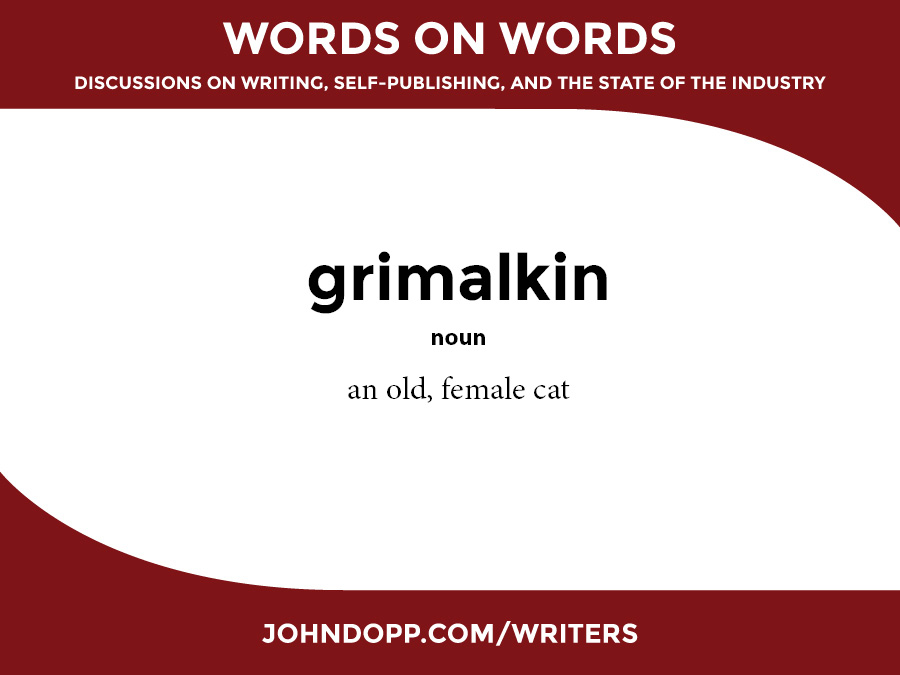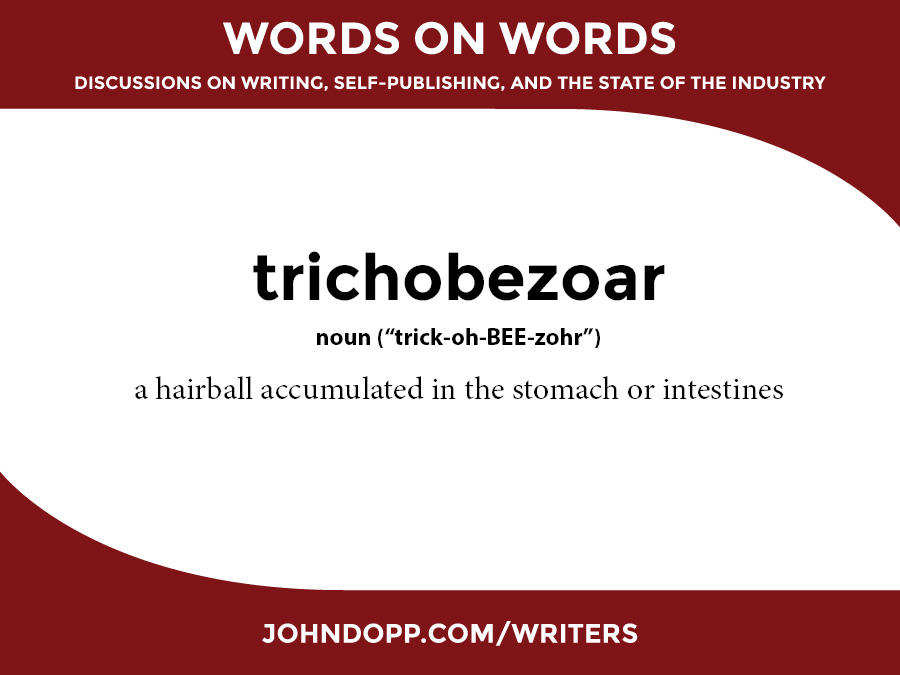Authors like cats because they are such quiet, lovable, wise creatures, and cats like authors for the same reasons.Robertson Davies
Do you love cats? Do you love language?
If so, this week’s Lunchbox was made just for you! How many of these phrases for furry feline friends do you know?
Malkin is a Middle English word that means “little Molly”. It’s a somewhat negative term used for a number of raggedy subjects: a tattered scarecrow, an untidy woman, a mop made from a bundle of rags, or a cat.
From gray plus malkin, we get grimalkin, an elderly, female cat. It’s a word that conjures up images of the scrawny, gray-muzzled grande dame who saunters onto your porch and demands to be fed, knowing from years of experience that she cannot be denied.

From the Middle English kindel — meaning “offspring” — we get an exquisitely cute collective noun: a kindle of kittens.

A trichobezoar is a fancy sesquipedalian for one of the cat’s less endearing qualities, the soggy hairball. The word comprises the prefix tricho-, meaning “hair”, and bezoar, a hardened mass of indigestible material that accumulates in the stomachs of some animals. The bezoar was believed to have magical curative properties; the word is from the Persian bad (“against”) + zahr (“poison”).

Hungry for more? Exotic words to appeal to any palate can be found in the Lunchbox archives!